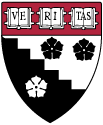Magic vocabulary learning
This Spring, I taught Scratch to kids ages 10 to 14 at my homeschool coop. Some kids had Lego programming experience, and most had none. We had only six 75-minute meetings. I offered no formal introduction of computer terms, and we had very little discussion time overall, probably 15 minutes total.
At the end of the class I went through a basic programming vocabulary list from a Computer Science 101 class, such as "conditional statement" and "infinite cycle". I read those dry formal definitions... Students understood EVERY SINGLE TERM from their own projects and those of classmates. They explained what each term meant in their own words, told me what particular game mechanics it could support, and provided examples from their code. In other words, they gained pretty deep, highly applied and connected understanding of programming concepts and vocabulary, without any formal instruction whatsoever. They gained that knowledge from working, reading comments on the site and forums for help, and asking one another and me particular project questions. It felt like magic.
Now, here is some real learning power of the platform, and the community of practice surrounding it!


You can see some of the projects here: http://scratch.mit.edu/galleries/view/41117
Off-topic: can the "Subscribe" option happen automatically when you post in a thread? Or maybe there is a global option for that I can tweak in my profile?
Good question. Currently, you can subscribe to a global content type (i.e. anything that happens in stories, discussions, etc.) or an individual thread.
I think it would be great for a member to have the option to automatically receive notifications when anything happens to their content. (Rather than manually subscribing to each contribution or automatically subscribing to everything related to them or not.) I've added a development ticket about this. Thanks!
Thanks for sharing your story! It's nice to hear how the kids were able to connect computer science concepts to personally-meaningful design experiences.
Are their projects on the Scratch website or otherwise available to see?